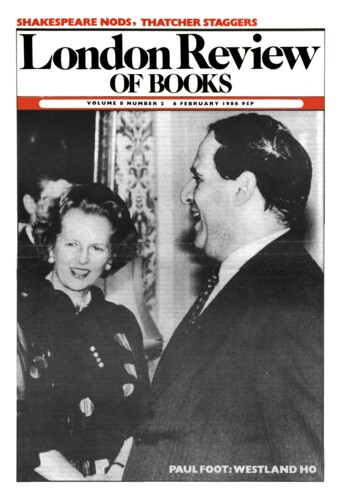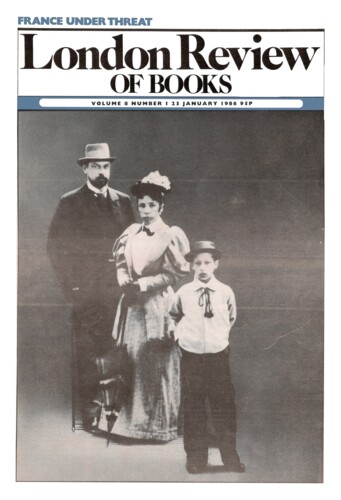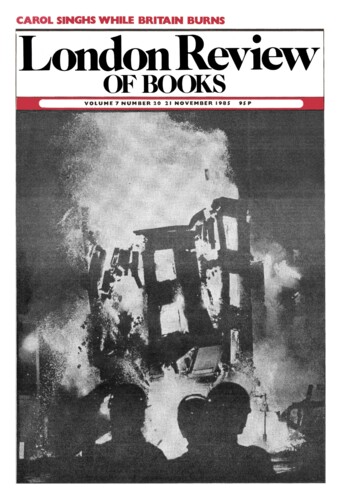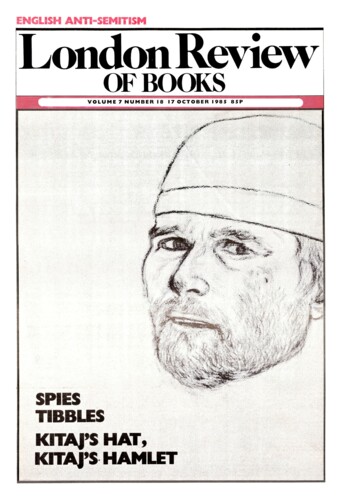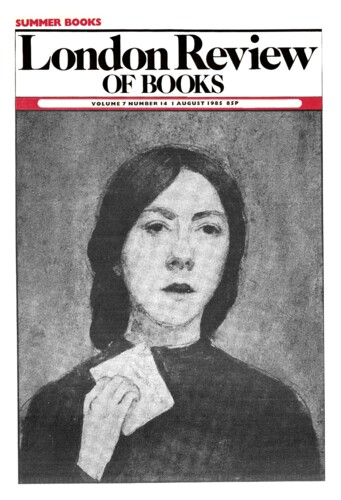Horrors and Hidden Money
D.A.N. Jones, 6 February 1986
Would we buy a used car from Norman Lewis? He certainly seems to know a lot about them. There is a picture on the dust-cover of the young Lewis (he was born in 1918) proudly at the wheel of a Bugatti, and he describes, too briefly, his dangerous experience with such a machine at Brooklands in 1939, his last adventure in serious motor-racing. In the Thirties he used to buy second-hand cars in Italy, to be done up and sold in Britain. We might guess, from his novels and travel-books, that Lewis would make a persuasive salesman; but this ‘Autobiography’ might also persuade us that he is inclined to exaggerate. He has often written in a cool, unsurprised, almost entertaining way about gruesome events in four continents – like a Martian anthropologist, sometimes. It comes as a relief when he expresses astonishment or indignation: his traveller’s-tales are made more credible.’
